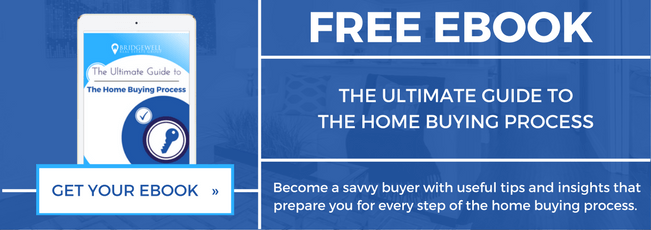Deposit on a House Purchase
Everything You Need to Know About Deposits
The deposit is put down as good-faith money by the buyer towards a home purchase.
It’s an important part of the process, and to make sure your home purchase goes smoothly you’ll need to make sure you know the norms when it comes to the deposit.
This blog outlines the standard deposit amount, when the deposit needs to be handed in, differences between deposit and down payment, and more.
Keep reading for everything you need to know about the deposit in real estate!
What is a deposit in real estate?
A deposit is good faith money that is put down by the buyer upon a successful (or firm) agreement of purchase and sale of a home. This deposit forms a part of your down payment, and thus a part of the purchase price.
This deposit will:
- Provide security to the seller, as it ensures that the buyer is committed by having a stake in the agreement.
- Pre-estimate damages in the event of a breach of a contract
Ultimately, the buyer will have something to lose if they walk away from the deal and refuse to close at the time of completion. The deposit is typically paid by form of bank draft, but may also be taken in the form of a certified cheque depending on the brokerage policy.
When do I have to give the deposit?
In Greater Vancouver, the deposit is typically due within 24 hours of subject removal.
By contract, the agreement of purchase and sale states that the deposit is due within 24 hours of acceptance unless otherwise stated. It is extremely important that if you have added subjects to the terms and conditions section of your agreement, that your agent also adds that the deposit is due within 24 hours of subject removal (rather than acceptance). This is because if you do not want to hand in your deposit prior to subjects being removed – in case you cannot obtain financing, are not satisfied with the inspection, etc. Your agent can write alternative arrangements for the deposit, such as “Tuesday, February 28th by 12 noon.”
For more information about subject removal in real estate related to deposits, check out our blog here: Subject Removal 101.
Keep in mind that in a multiple offer scenario, as a negotiation tool, it is best to have your deposit with you in hand to show that you have the available funds liquid and ready to go. This is specifically important if you are presenting a subject free offer.
How much is the deposit? How much of a deposit should I provide the seller when buying a home?
In Greater Vancouver the deposit is usually 5% of the purchase price. If the seller counters your initial price, they do not typically also counter your deposit amount. Thus, the deposit usually remains the 5% of your initial offer price. However, there is no fixed deposit amount required by law.
If you are in a multiple offer scenario, it is quite common to offer more than 5% (i.e. 10% +) to show that you are ready and capable to finance the transaction. If you have a high deposit, you are also showing the seller that if the deal is firm that you are putting yourself in a situation where if you were to walk away you would lose a significant amount of money. Thus, they will believe that you are more likely to complete than someone with a lower deposit. The truth is, the higher the deposit the more attractive the offer.
Ultimately, the risk of offering a deposit lower than expected (minimum 5%) is that the seller and the seller’s agent may perceive you as unserious or financially at risk.

Who is the deposit supposed to be made out to?
In BC, the deposit is always made out to the buyer’s agents brokerage and held in trust. Therefore, when I am representing my buyer, they will make out the minimum 5% deposit to: Oakwyn Realty Ltd. In Trust. Don’t worry, the brokerage cannot use this money to pay their own expenses or anything like that. These accounts are regularly audited and very regulated.
If you’re purchasing a presale, then it may be the case that the deposit is made out to the developer’s notary/lawyer or the developer’s realtor’s brokerage. Regardless of whether you are purchasing a presale or resale property, check with your realtor to confirm who the deposit should be made out to before receiving it – you’ll want to know before the 11th hour.
Does my deposit form a part of my down payment?
Yes, your deposit will form a part of your down payment and works to pay off the purchase price. Have your notary or lawyer conduct a statement of adjustments for you, so that you know how much you will have to pay upon closing. Real estate is one of those industries where you definitely don’t want any surprises.
For more information on down payments in BC, check out our blog here: Down Payment 101.
What happens to your deposit at closing?
The deposit forms a part of your down payment, so it is applied to the buyer’s closing costs at closing on the statement of adjustments.
So if a Buyer pays $1,000,000 for a home and provided a $50,000 deposit, then that amount ($50K) plus any additional down payment and mortgage money from the lender will be provided to the seller (less the expenses and adjustments).
Do I have to give my deposit before I remove subjects, or after?
It depends on how your contract is worded. Typically, it will be within 24 hours of subject removal. Keep in mind, this additional detail needs to be added on to the first page of the contract, so it is extremely important that your realtor is experienced with contract writing to ensure that you don’t lose your deposit if you don’t remove subjects.
If I can’t get financing, do I still have to give my deposit?
Again, this depends on how your contract is worded. If your contract is “subject to financing” and your realtor has also added that “the deposit is due [enter time] after [or upon] subject removal” then you would not have handed in your deposit yet. Your realtor would simply tell the listing realtor that you cannot obtain financing and the deal would “collapse.” No money lost.
If you have already handed in your deposit contingent to obtaining financing, and cannot obtain financing, your deposit should be refunded in full. Again, make sure you know exactly what you are signing and read through the contract of purchase and sale thoroughly before making anything official.
It is also important to note that when you are dealing with subject removal and you do not remove subjects, if the seller does not believe that you acted in good faith in fulfilling the condition (i.e. financing), they can take you to court. If you’ve already handed in your deposit but have not removed subjects, they can refuse to release the deposit. Make sure that when you are removing subjects that you can prove that you were not able to fulfill your subject.
What happens if the deposit is late?
If your deposit does not arrive at the time stipulated in your contract, then you are technically in a breach of agreement. The seller could potentially walk away from the deal, and if they have a more attractive back up offer in place or other buyers consistently inquiring on the property, they may see this as an opportunity to sell their house for more money. Do not be late with your deposit.
Can I get the deposit out of my RRSP?
Yes you can, the government offers the “Home Buyer’s Plan” which allows home buyers to withdraw up to $60,000 in a calendar year from their registered retirement savings plan (RRSP) to buy or build a home (given it qualifies) for themselves or a related person with a disability. If they’re in your RRSP make sure your contact your financial institution and confirm that they’re able to withdraw funds within 1 week upon receiving an accepted offer. For more information on the program, check out this article: Home Buyer’s Program RRSP.
Pro tip: While your RRSP is an option, they can oftentimes take 5-10 business days, which can result in your agreement to collapse. If you’re working with a bank, many buyers will have a line of credit set up to finance their deposit in advance of a purchase in case your funds are tied up in investments or difficult to take out of your RRSPs. Talk to your bank to see if you qualify.
“I wrote a subject free deal but now I don’t want to hand in my deposit”
We’ve seen properties that have 20 offers on them, and naturally the seller ends up accepting the one that is subject free (meaning there were no conditions like financing or inspection) and all that is left is for the buyer to hand in the deposit.
Sometimes a Buyer pays more than they anticipated and wake up the next day with regret. However, if a deal is firm and conditions are removed then a buyer must proceed with the purchase and provide a deposit regardless of whether they feel regret or not.
Agreements are signed under seal and are binding, and not providing a deposit when you’ve already removed subjects or never had any subjects can get you sued.
As a buyer, what happens to the deposit if I’ve already removed subjects but can’t complete?
In this situation, your deal has already gone firm. Because one of the purposes of the deposit is to provide a security to the seller in the case that you don’t complete, you will lose your deposit. The seller can also sue you for damages. Damages are calculated based on on the seller’s losses due to the breach.
For example, if the market value has significantly dropped $50,000 since your accepted offer and you refuse to complete, this would be considered a loss. This can get extremely messy, especially if the seller has already bought an additional property, as they are most likely using the funds from their sale to purchase their new home. If you are in this scenario, make sure to contact your lawyer immediately to have them guide you through the process and estimate costs.
As a seller, what happens to the deposit if the buyer doesn’t complete?
In most cases, when the deal has gone firm and subjects have removed, the seller will keep the deposit and potentially sue the buyer for damages. Like I said before, this can get pretty messy, especially as a seller if you have already purchased. First things first, contact your lawyer immediately to have them guide you through the process, and advise on what steps to take if you have purchased.
——
We hope that this blog provided you with helpful information about the deposit on a house purchase in a real estate. If you’re looking to purchase a home and are looking for a realtor to help walk you through the process then reach out to us anytime at 604-319-0200 or email [email protected] to start a conversation. We’re happy to guide you through the process of a deposit on a house purchase and the home buying process in general!



